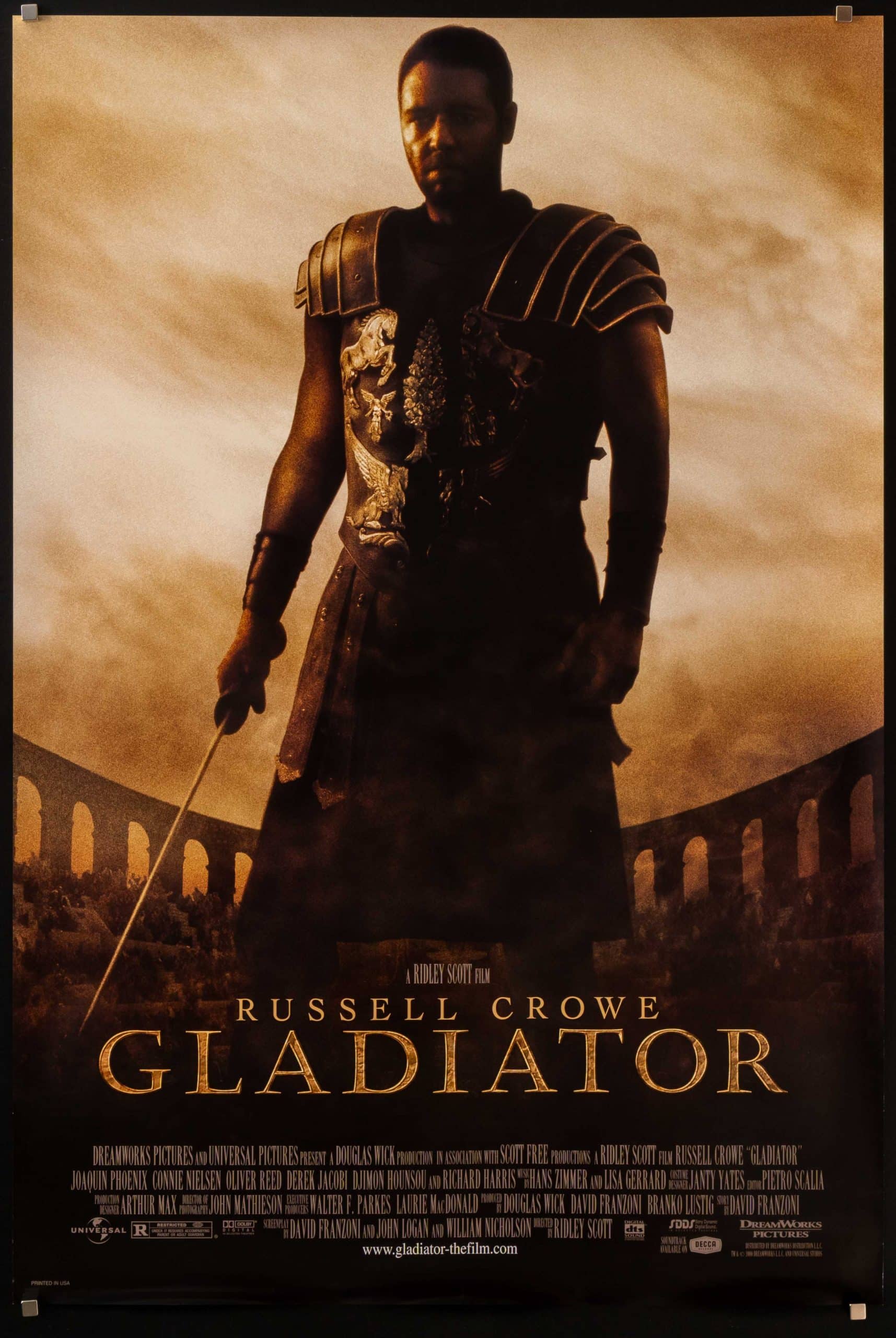
- Starring
- Russell Crowe, Joaquin Phoenix, Connie Nielsen
- Writers
- David Franzoni, John Logan, William Nicholson
- Director
- Ridley Scott
- Rating
- 14A (Canada), R (United States)
- Running Time
- 135 minutes
Overall Score
Rating Summary
Never one to dwell too hard on the historical accuracies hanging in the rearview of his period pieces, Ridley Scott nonetheless captured the entirely tangible essence of an era seemingly lost to the sands of time. That era was, of course, the start of the new millennium, when blockbuster epics were good enough to win awards; when studio films held the texture of real costumes and locations; when the sword-and-sandal epic was still a sub-genre that drove audiences to the theatre like so many bloodthirsty gladiatorial spectators. In so doing, Gladiator also harkens back to a moment in time in which the irrefutable craft of a grand-scale historical tale was blinding enough in its awe to distract from those flaws lurking behind the drapes with a dagger, ready to strike and take the whole project down with them.
Perhaps it’s that persistent longing for those honest-to-God epics we simply don’t get anymore in an age of effects-heavy grey goop that has allowed Gladiator to remain so consistently beloved over the course of the past quarter-century; for those who have spent any time around a teenager discovering cinema for the first time, or an enthusiastic fraternity—or, God forbid, Ralph Cifaretto—then they have probably heard more than their fair share of praise for the film. Much of it, to be fair, is entirely deserved, as Scott’s natural sense of orientation within the field of historical epics—born right from the start with The Duellists, and honed even further with Kingdom of Heaven—finds its most appropriately populist leanings in a milieu where one literally survives by their capacity to entertain. As is often the case with the British filmmaker, though, the undeniable craftsmanship he brings to the arena remains at the mercy of the emperor’s merciless thumb; that thumb is, naturally, whoever happens to be penning the script.
In this case, the story of Gladiator—as if anyone now needs the plot synopsis —comes courtesy of a trio of scribes, all crashing together with the gleeful clang of swords against a narrative whose simple ambitions find themselves somewhat encumbered by the failed weight of the characterization intended to prop them up. David Franzoni, John Logan and William Nicholson propose a straightforward premise: a general betrayed by a usurping emperor, forced into slavery where he must work his way through the ring and, subsequently, towards revenge, all acting as a microcosm for the implosion of the Roman Empire itself. Toss in Russell Crowe in an Oscar-winning turn—running the entire spectrum of human emotion within the scope of a palatable blockbuster—alongside some insanely quotable lines that have echoed through the decades, and the recipe is one sure to please.
What that recipe doesn’t quite do, however, is bring any real flavour to the relationships that Maximus (Crowe) has or makes along the way. That his wife and child are given no screen-time before being unceremoniously killed off actually serves as a potent comment on the sacrifices Maximus has made to an Empire that so easily disposed of him and his loved ones, but the filling of that void by way of either new romantic prospects or camaraderie found in bondage comes across as especially flimsy for a two-and-a-half-hour film. Oliver Reed, Connie Nielsen and resident MVP of supporting players Djimon Hounsou are all presented as being important or at least relevant to Maximus in some way, but little time is actually spent nursing that spark into a lasting flame.
To be sure, “intricate character dynamics” isn’t exactly the motivating factor for most people who sit down to watch Gladiator, as for a film of such lofty length, Scott curates a runtime that nearly flies by. The action scenes, choppily edited as they may be in sequences, remain propulsive, and the scope of such a film at the dawn of an era when CGI was just starting to be mixed in with practical sets is truly astounding in parts, particularly for the year 2000. Like the fighters thrown into the arena, left to be slaughtered for audiences’ viewing pleasure, Gladiator remains a rough but shapeable warrior of the cinematic stadium, more than willing to push its way to the top of the pile, its name echoed through the ceaseless chanting of the satisfied masses.
still courtesy of Universal Pictures
If you liked this, please read our other reviews here and don’t forget to follow us on Twitter or Instagram or like us on Facebook.
Discover more from
Subscribe to get the latest posts sent to your email.
